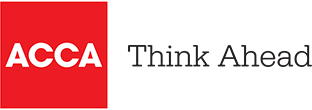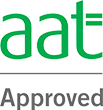Offices In Manchester & Liverpool
Accounting Services
At Williamson & Croft, we truly believe that good accounting services, whether internal or external, are the key to business development, growth, and operational efficiency. Helping management to understand the areas in which they are performing well, and those that require improvement, accountants can do everything from managing key relationships, providing strategic advice and developing robust systems and controls to reduce risk, to keeping the business compliant with the ever-increasing maze of legislation and reporting obligations.
With such a fundamental part to play in your business, you need an accountancy firm that has the necessary skills and technical expertise to provide your business with a partner with a proven track record of helping businesses to achieve their goals. One that places client care above all else, underpinned by values of responsiveness, dependability, and shared responsibility. One that will go above and beyond to meet your needs and that can react to the constantly changing environment. If this sounds like the kind of accountancy firm that you want to work with, then you need Williamson & Croft by your side.

Knowledge and expertise you can rely on
We’re not just an extension of your team – we become a key part of it. Get in touch with us today by calling us on 0161 399 0121 or emailing us at info@williamsoncroft.co.uk to learn more about our accountancy services, and how we’ll always be a sound investment.
Our Accountancy Services include:

Whether you are a Limited Company, Community Interest Company, Limited Liability Partnership (LLP), Partnership, or Sole Trader, we can provide you with a seamless and reliable accounts preparation service. We ensure your accounts are prepared under the correct accounting standards and that the accounting treatments adopted are appropriate. All accounts are prepared in the correct format to be filed with the relevant authorities and electronically tagged in the required XBRL format to allow online filing.

Our Corporation Tax compliance service will ensure your Corporation Tax return and tax calculations are accurate so that you meet your tax obligations. In addition, we also take this opportunity to look at tax planning, identifying opportunities and risks to the business. Whether you have a group structure, complex capital allowance claims, international businesses with UK obligations, R&D Tax Credits or Capital Gains our expert tax team are there to assist.

Whether you are self-employed, employed, a company director, or a non-resident landlord, we can help with the preparation and submission of your tax return. We can prepare the returns from source documents or simply calculate tax liabilities based on the figures that you provide.

We can prepare your VAT returns or simply complete a final review prior to submission. All of our team members are fully-trained in all of the major accounting software packages and can guide you through the Making Tax Digital (MTD) regime to ensure you are fully compliant.

Payroll is one of the most important processes within your business as it affects all of your staff, and poorly managed payroll can reduce morale and ultimately lower staff retention. This combined with the ever-changing tax legislation means it is key that you have a robust and accurate payroll solution in place. Our payroll team ensures that your payroll is efficient and compliant at all times. It covers auto enrolment pension schemes, minimum wage calculations, secure electronic communications, benefits in kind calculations and P11d submissions, and fully compliant HMRC Real Time Information (RTI) processing.

Depending on the size and nature of your business you can outsource your bookkeeping functions to us and we can manage your sales invoicing, purchases, expense claims, and bank reconciliations. If your business is too large or complex for our remote service, then we can advise you on the level of service you need and we work with lots of external bookkeepers that we can make introductions to.

All our staff are trained in all of the major cloud accounting packages and can help you set up and maintain your preferred solution, ultimately allowing you to review your financials in real time from anywhere, at any time, and on any device.
Why choose Williamson & Croft as your accountants
- We are an award-winning firm of accountants and tax advisors offering the full range of services to clients within the UK and beyond. This is highlighted by our 5* reviews, and the fact that we are highly recommended by so many of our clients and contacts.
- We don’t believe in a ‘one size fits all’ approach. We offer tailored strategic advice based on your goals and ambitions.
- We cover a vast range of sectors as varied as property, construction, technology, digital and creative, and professional services, for which our clients consider us experts when it comes to understanding, and delivering on, their specific needs.
- We are easily found in Manchester and Liverpool, it would be great to arrange a meeting to discuss your business and for you to meet either the Manchester or Liverpool accountants who will be assisting you.

Contributing to a pension can bring significant tax advantages if you own a limited company as the contributions can be treated as an allowable business expense, offsetting against your company’s corporation tax bill. The following ways to make contributions are found to have their own benefits:
- Personal pension contributions: you will receive tax relief that reflects your rate of income tax. On a basic rate of tax you essentially only pay £100 to save £125 in your pension.
- Personal pension contributions from a limited company: as you take both salary and dividends, the dividends don’t count as relevant UK earnings so the amount you’re taking as income will be used to calculate your pension tax relief limit.
- Employer pension contributions: your limited company can contribute pre-taxed income to your pension, due to employer contribution counting as an allowable business expense then that means the company will receive tax relief against corporation tax. This could save the company up to 19% in said corporation tax.
You are required to register for VAT when;
- You expect your VAT taxable turnover to be more than £85,000 in the next 30-day period.
- Your business had a VAT taxable turnover of more than £85,000 over the last 12 months.
When calculating your VAT taxable turnover, a number of considerations can come into play, some goods and services are exempt from VAT and there are specific rules around the place of supply. We’d recommend getting in touch if you are unsure of your requirements.
Some businesses voluntarily register for VAT for commercial reasons, so you don’t necessarily have to wait until you’ve hit the threshold.
There is an obligation to carry out the following for VAT compliance:
- Issue and keep valid invoices.
- Keep copies of all sales invoices you issue.
- Keep all purchase invoices.
- Charge the correct VAT rate.
- Show the VAT information on your invoice.
- Ensure the correct rate of VAT is being applied.
There are a number of factors to consider when selecting bookkeeping software, and some software is specifically suited to certain industries and others are aimed at entities of a certain size. It is also worth considering who is going to be using the software, as if you have an in-house finance team we would recommend trialling different packages to see what suits your needs.
We use ReceiptBank which allows you to track business expenses and share them instantly with your accountant. It’s a unique combination of AI-powered OCR technology and human verification that turns documents into digital data faster than any other solution with a level of accuracy to trust in. We also use Quickbooks, Xero, Sage, and Free Agent so that expands our capabilities no end, as well as your business’s.
If you are unsure of which software would suit your company, feel free to get in touch so we can provide our opinion.
The audit thresholds for UK companies can sometimes be confusing. Companies are exempt from audit if they qualify as small companies unless they are members of a group or are charities and hence are required to follow the different charity audit thresholds.
Your company may qualify for an audit exemption if it has at least 2 of the following:
- An annual turnover of no more than £10.2 million.
- Assets worth no more than £5.1 million.
- 50 or fewer employees on average.
If you are a business owner, a voluntary audit is particularly useful if you delegate the running of your business to a management team, and also if you are considering selling your business or you are looking for investment.
A voluntary audit can also:
- Assess your financial policies, procedures and controls in your business.
- Manage risk.
- Protect assets from fraud.
- Help you achieve your business goals.
It’s important to be savvy when it comes to expenses. Luckily, there are a number of expenses you can claim back so make sure you’re not paying a penny more tax than you need to on them. The following highlights what you can claim back on:
- Accountancy fee expenses for limited companies.
- Accommodation expenses (for business travel).
- Business mileage and travel expenses.
- Charitable donations as a limited company.
- Childcare expenses – voucher scheme, tax-free childcare scheme.
- Staff event expenses (meeting conditions).
- Equipment expenses.
- Eyesight tests and glasses.
- Fees & expenses from forming the company (set up costs).
- Fixed assets/disposal of fixed assets.
- General off purchases.
- Gifts or small benefits for employees.
- Pension payments.
- Phone lines.
- Salaries.
- Training expenses.
- Use of your home as an office – £4 per week.
Get in touch with us today if you need advice in claiming back or on how to keep a record of your expenses.
If you use your personal vehicle for business travel to a temporary work location then you’re entitled to claim. This is beneficial because not only does the business expense reduce the overall Corporation Tax bill but it also means that you can reimburse yourself the amount claimed. To work out how much you can claim for each tax year (for a privately owned vehicle) you’ll need to do the following:
- Keep records of dates and mileage of the work journeys.
- Add up the mileage for each vehicle type you’ve used for work – car, van, motorcycle or bicycle.
- Take away any mileage allowances.
ACCOUNTANCY SERVICES
Our specialist team, ready to help you


Accounting
The process of keeping the financial records of a business, typically carried out by an accountant qualified by a regulatory body, such as the ICAEW / ACCA.
Assets
Items owned by a business that hold value, such as fixed assets including computers, equipment and buildings, current assets which are cash and other assets that are expected to be converted to cash within a year, or intangible assets such as patents, copyright and trademarks.
Balance Sheet
A financial statement which shows a company’s financial position by showing assets, liabilities and equity.
Bookkeeping
The process of preparing the accounts and recording financial transactions, including purchases, sales, receipts and payments.
Cost of Goods Sold
The cost price of goods sold and is shown on the Profit and Loss account.
Creditors
A business owes money to its creditors, ie banks, suppliers, or a person who has given credit to the company.
Debtors
A business or person who owes your business money. This may be from you supplying work on credit and they have a sales invoice, or they owe you money.
Dividends
A percentage of profits paid to shareholders. An example of this is if a business made a profit of £10,000 and paid two shareholders £5000 each, as they hold 50% of the shares.
Equity
An ownership interest in a business, including stockholders’ equity or owner’s equity.
Expense
Money paid for items or services – the Profit and Loss account shows income and expenses.
Gross Profit
Your gross profit can be calculated as follows:
Total Sales – Cost of Goods Sold = Gross Profit
Indirect Costs
Costs that don’t link directly to a specific project, e.g. advertising the business, which promotes the whole of the business rather than one product/service.
Invoice
A document which details what goods or services have been provided and what is due. Sales invoices are sent to your customers, and purchase invoices are received from suppliers.
Liabilities
Anything the business owes to other organisations or people, including; loans, overdrafts and money owed to suppliers.
Loss
If the income is less than the outgoings then a loss has been made. You can also make a loss if you sell a fixed asset for less than its value.
Margin
The difference between price of goods sold and the cost of goods sold.
Net Assets
Your net assets can be calculated as follows:
Total Assets – Liabilities = Net Assets/Equity
Net Profit
Your net profit can be calculated as follows:
Gross profit – expenses = net profit
Revenue – cost of goods = gross profit – expenses = net profit
Overdraft
An agreement with the bank to go below your balance into a negative balance, and typically fees are attached.
Profit and Loss
A financial statement which shows revenue and expenditure over a period of time.
Retained Profits
Money kept in the business rather than paid out to shareholders as a dividend.
Revenue
The amount of money that a business receives in any period, shown at the top of the Profit and Loss report.
Shareholders
Investors in a company, shareholders take money out of the company by dividends.
Shareholders funds are calculated as follows:
Assets – Liabilities = Shareholders Funds.
Trial Balance
An accounting report listing all the debits and credits of all the general ledger accounts, usually run at the year-end to review all accounts.
VAT
If you are VAT registered you need to add VAT to your sales invoices and claim back from purchases.
Write Off
A debt from a customer that you don’t expect to be able to collect and so the debt needs to be written off the sales ledger.
Year End
End of the financial years, accountants need to be produced here.














